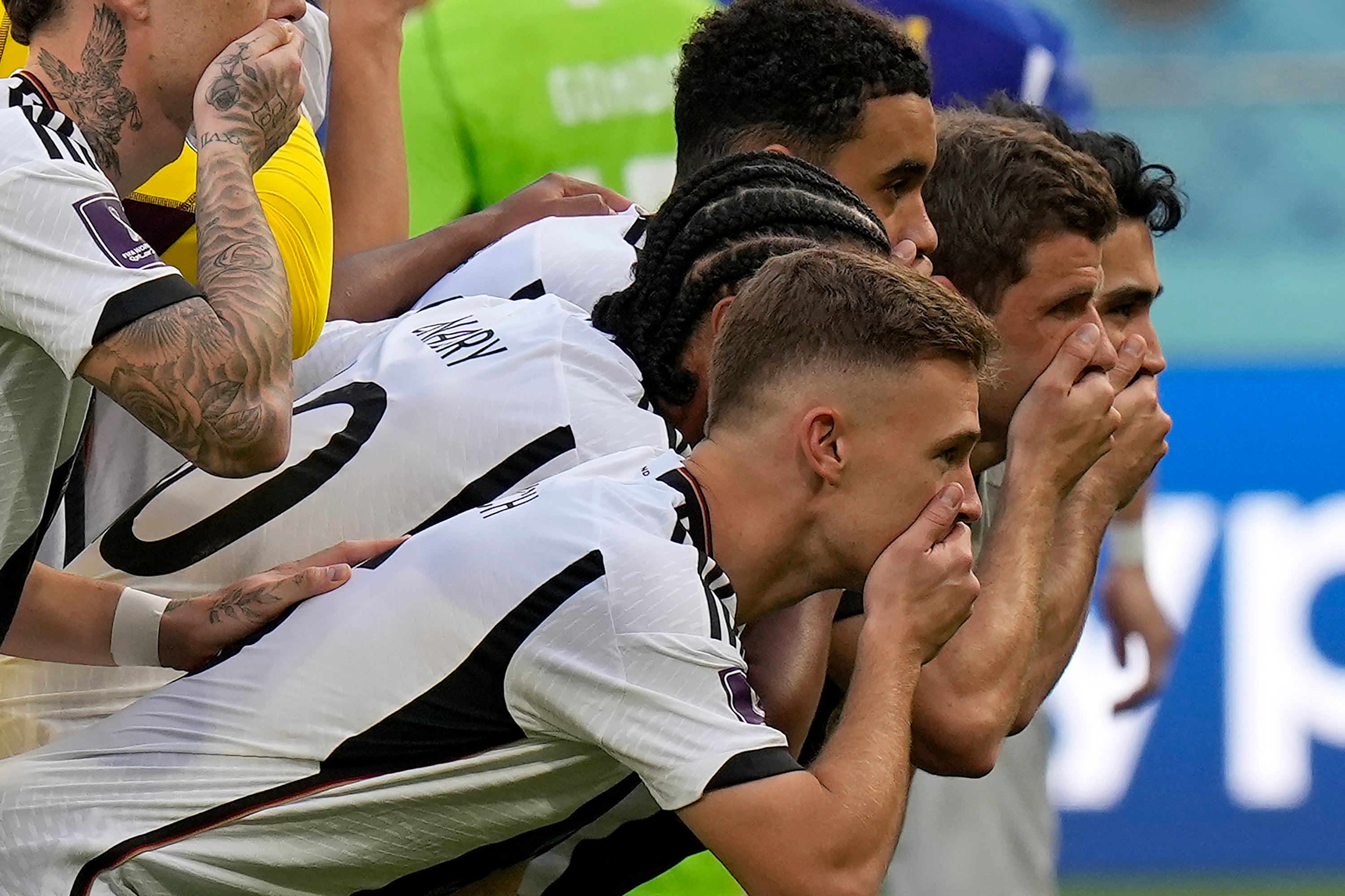The World Cup has been all the better for its politics
From LGBT+ rights to Palestine, protesters have defied Fifa’s message to put politics aside at the tournament in Qatar, writes David Harding


Politics, despite the delusional calls from Gianni Infantino, has been an ever-present part of the Qatar World Cup. And the tournament has been all the better for it.
Valid criticism of the host’s appalling human rights record, especially on the issue of its treatment of migrant workers, was always going to dominate and should continue long after the last ball is kicked.
Other issues have come to the fore – LGBT+, Iranian domestic politics – and, most notably, pan-Arab support for Palestine.
This support has emerged in several ways: from local VIPs wearing armbands with the black and white design of the keffiyeh scarf associated with the Palestinian cause as a counter to Western demands for OneLove rainbow armbands, to people being rude when approached by Israeli TV presenters in Doha, through to those outright demanding “Palestinian freedom” on social media videos.
The way the support has been vocalised is interesting for several reasons. Prior to the tournament, Qatar, like Fifa, called for politics to be put aside during the tournament, but it seems some politics are more palatable than others for the organisers.
And the growing spontaneity of the calls is interesting given the political context in which they are occurring. Since 2020 we have been told the Middle East has entered a new era with the signing of the Abraham Accords, a series of agreements formalising diplomatic relations between Israel and Arab countries including UAE, Bahrain and Morocco.
These are top-down accords, where rulers of the countries involved insist they have popular backing and are necessary, without ever putting that theory to the test. We have never seen what the general population of these countries think and now thanks to the World Cup, of all things, we are witnessing that on a grand scale for the first time.
To keep up to speed with all the latest opinions and comment sign up to our free weekly Voices Dispatches newsletter by clicking here
If the football crowds are anything to go by, the accords and the parking of the Palestinian cause by rulers is anything but popular, and governments involved should not delude themselves into thinking anything else.
Tunisian fans have shown their support and Morocco has been particularly interesting. Its government signed up to the accords in December 2020, but their fans have waved Palestinian flags calling for a “free Palestine” during matches and their players celebrated making the last 16 of the tournament by doing the same.
Among the Arab countries not to sign up to the accords is, notably, Qatar. Doha may come under pressure after the World Cup to change its position. It seems unlikely to budge. Behind the headlines, rulers across the Middle East have been shown that the accords may not be as popular as some argue they are.
Yours,
David Harding
International editor






Join our commenting forum
Join thought-provoking conversations, follow other Independent readers and see their replies
Comments